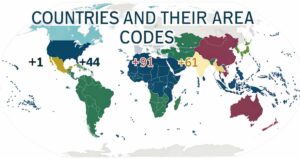Advocate Varun Papireddy on Combining Tradition with Tomorrow’s Legal Tools
4 min read
A surge in digital adoption and specialized cross‑border services is redefining legal practice in India. According to Grand View Research, the Indian legal‑services market is projected to double from USD 19.1 million in 2023 to USD 37.4 million by 2030, growing at a 10.1 percent CAGR . At the same time, niche verticals such as NRI property disputes and intellectual‑property litigation are expanding rapidly, driven by globalization, regulatory shifts, and clients’ demand for transparency . Against this backdrop, GPR Legal Solutions in Bengaluru has emerged as a bellwether for innovation, combining traditional advocacy with cutting‑edge technology and bespoke fee structures to serve both domestic and international clients. During an exclusive session, India Prime Times met with Partner Advocate Varun Papireddy to explore how his firm is navigating these trends, the challenges they face, and what this means for the larger legal ecosystem.
Digital Transformation: From E‑Filing to AI‑Augmented Workflows
Technology as an Enabler, Not a Replacement
Law firms across India are investing in cloud‑based case management, virtual hearings, and AI‑driven research tools. A recent Forbes analysis highlights eight legal‑tech trends, ranging from robust cybersecurity to generative‑AI assistants, that will shape law‑firm operations in 2025. GPR Legal Solutions has launched an encrypted client portal enabling real‑time updates on filings and automated reminders, reducing manual follow‑ups by over 40 percent, according to Mr. Papireddy. “Clients today expect instant access to case documents and clear timelines,” he said.
Online Dispute Resolution and Blockchain Pilots
Alternative dispute resolution (ADR) via digital platforms is gaining traction. Chambers & Partners reports that mediation and arbitration services are increasingly offered entirely online, trimming resolution times by up to 30 percent versus traditional courts. GPR Legal Solutions is piloting a blockchain‑authenticated evidence repository for international arbitrations, ensuring tamper‑proof records across jurisdictions, particularly valuable in NRI cases where physical documentation must be verified remotely.
The Rise of NRI Legal Services
Growing Demand for Property and Family‑Law Expertise
Non‑Resident Indians (NRIs) collectively hold billions in Indian real estate assets, but face complex compliance and taxation norms. An industry survey by Ampartners underscores the importance of power‑of‑attorney drafting, title searches, and succession‑certificate applications for NRIs, all of which must adhere to the Transfer of Property Act (1882) and RERA (2016) requirements. Mr. Papireddy notes that GPR Legal Solutions now dedicates a specialized NRI desk, staffed by multilingual associates who guide clients through leasing, sale agreements, and adverse‑possession defenses, services that have grown 25 percent year‑on‑year.
Flat‑Fee Models and Enhanced Transparency
To combat “bill‑shock,” the firm introduced flat‑fee packages for standard NRI divorces and property transfers. This approach mirrors best practices highlighted by LegalTechTalk’s Indian LegalTech Network: clear pricing fosters trust and reduces friction in long‑distance engagements. “When NRIs know the exact cost upfront, they can focus on evidence gathering rather than worrying about runaway bills,” says Papireddy.
Criminal Defense and Family Law: Balancing Rigor with Empathy
High‑Stakes Criminal Litigation
India has seen a steady rise in cases under POCSO, NDPS, and sexual‑offense statutes. Economic Times coverage of the 2025 ET‑MS AI Legal Summit underscored the need for AI‑aided evidence analysis in complex criminal trials. GPR Legal Solutions leverages predictive‑analytics tools to scan past judgments and identify argument patterns with an 85 percent confidence rate, streamlining trial preparation.
Sensitive Family‑Law Matters
Divorce and child‑custody disputes remain emotionally charged. Chambers & Partners’ Private Wealth guide observes that evolving parenting policies and prenup agreements are emerging priorities for high‑net‑worth clients. Papireddy emphasizes empathetic client counseling, noting: “Legal strategy must account for human dynamics, understanding family histories and cultural contexts is as crucial as precedent research.”
Market Outlook and Competitive Landscape
According to Mordor Intelligence, corporate‑law services generated the largest segment revenue in 2023 and will remain the fastest‑growing area through 2030. Meanwhile, Dentons India flags data‑compliance and AI governance as top trends for 2025, urging firms to develop in‑house policies on generative‑AI use. GPR Legal Solutions is already drafting AI‑ethics guidelines to govern internal research bots, ensuring client confidentiality and adherence to emerging data‑privacy laws.
India Prime Times’ Takeaways
In our conversation, Advocate Varun Papireddy demonstrated a forward‑looking vision: combining the deep bench of traditional litigation expertise, spanning Supreme Court appeals to rural‑court writs, with digital agility and client‑centric pricing. His firm’s embrace of flat fees, blockchain pilots, and AI‑augmented workflows exemplifies how midsize law practices can compete with large national players by specializing in high‑growth verticals like NRI property, IPR litigation, and criminal defense.
As India’s legal market hurtles toward greater digital integration and regulatory complexity, the ability to marry technological innovation with rigorous advocacy, and maintain empathy in family‑law contexts, will distinguish firms in both domestic and international arenas. GPR Legal Solutions’ trajectory suggests that those who adapt fastest will not only capture market share, but also set new benchmarks for client service and operational excellence.







